Medium


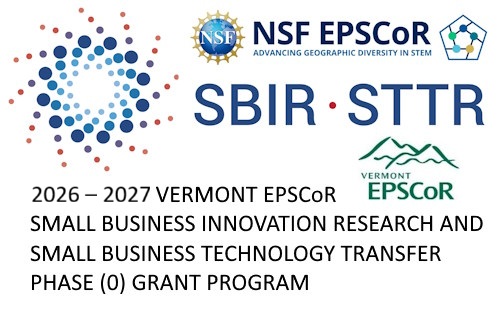
2026 – 2027 Vermont EPSCoR Small Business Innovation Research and Small Business Technology Transfer Phase (0) Grant Program
Vermont EPSCoR will once again provide the opportunity for Vermont small businesses to compete for awards to foster research and development projects which will lead to applications to federal Small Business Innovation Research (SBIR) and Small Business Technology Transfer (STTR) programs.
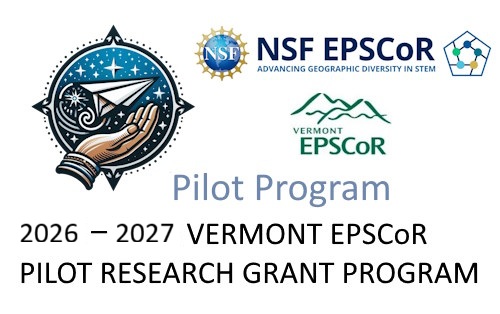
2026 – 2027 Vermont EPSCoR Pilot Research Grant Program
Vermont EPSCoR will once again provide the opportunity for Vermont researchers to compete for awards that support research aligned with Vermont EPSCoR priorities. The Vermont EPSCoR Office seeks applications that propose novel, innovative scientific research aligning with SOCKS and having the potential to advance Vermont’s research strengths in areas related to SOCKS.
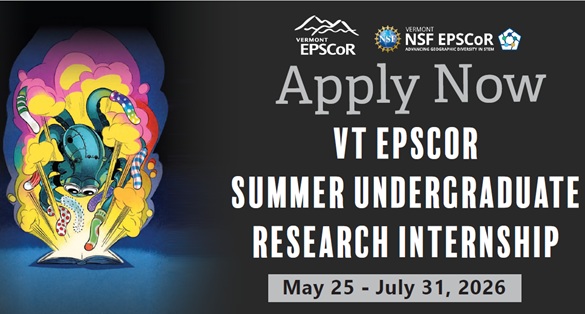
2026 Summer Undergraduate Internship
Vermont EPSCoR is offering 2026 summer research internship opportunities for our cutting-edge NSF-funded project, Harnessing the Data Revolution for Vermont: The Science of Online Corpora, Knowledge, and Stories (SOCKS). More Information Apply


2026 EPSCoR Research Infrastructure Improvement (RII): EPSCoR Research Fellows
Upcoming Deadline: April 14, 2026
EPSCoR Research Fellows provides awards to build research capacity in institutions and transform the career trajectories of investigators and further develop their individual research potential through collaborations with investigators from the nation's premier private, governmental, or academic research institutions and/or centers. Call for Proposals
EPSCoR Research Fellows provides awards to build research capacity in institutions and transform the career trajectories of investigators and further develop their individual research potential through collaborations with investigators from the nation's premier private, governmental, or academic research institutions and/or centers. Call for Proposals

EPSCoR Research Infrastructure Improvement: EPSCoR Research Incubators for STEM Excellence (E-RISE)
E-RISE projects must have a clearly articulated research goal that will lead to new knowledge by addressing a clear hypothesis or problem. The E-RISE project should promote areas of research capacity-building within a chosen research topic; development of a skilled workforce that is relevant to the research topic, as well as the project and its outcomes; a culture of collaboration and engagement across dierent types of academic institutions and organizations, as well as non-academic sectors (e.g., industry and government); integration of the research with societal impacts; and a clear sustainability plan to preserve the resulting research incubator's team and products beyond E-RISE funding.

EPSCoR Research Infrastructure Improvement Program: EPSCoR Collaborations for Optimizing Research Ecosystems (E-CORE)
Based on the evidence-based and self-identified needs of a jurisdiction, the types of cores supported by E-CORE may include (but are not limited to) development, enhancement, and/or ensuring the sustainability of: research administration; research facilities and infrastructure (including cyberinfrastructure); STEM education (K-12) pathways; higher education pathways; early career investigator pathways; broadening participation; workforce development; national and global partnerships; community engagement and outreach; technology transfer; economic development; and use-inspired research pathways. E-CORE projects must be designed to support the sustainability of the research infrastructure cores beyond the award period. Projects will also support the development and growth of new jurisdiction-wide connections, and the leveraging of existing jurisdiction-wide connections, to drive substantive and sustainable impacts.

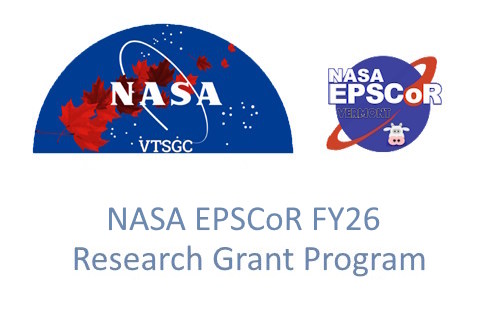
Request for Pre-Proposals--NASA EPSCoR FY26 Research Grant Program
Vermont’s NASA EPSCoR program anticipates that NASA Headquarters will release the FY26 NASA EPSCoR Research Notice of Funding Opportunity in October 2025. Historically, NASA EPSCoR research awards have been in the amount $750,000 for a three-year period of performance, with cost-sharing required at a level of at least 50% of the requested NASA funds.
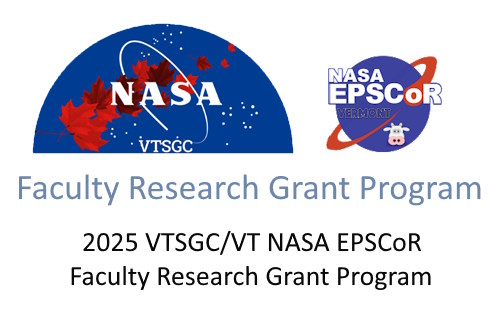
VTSGC/VT NASA EPSCoR Faculty Research Grant Program -- 2025 Request for Applications
The Vermont Space Grant Consortium (VTSGC) and Vermont NASA EPSCoR are pleased to announce the 2025 Faculty Research Grant Program, which offers pilot ($13,000) and small-scale ($30,000) grant opportunities in NASA-aligned areas. We expect to make up to 5 awards with an anticipated performance period of 12 months and a starting date of June 1, 2025 or October 1, 2025, depending on the source of funding. The application deadline is March 20. Call for Proposals